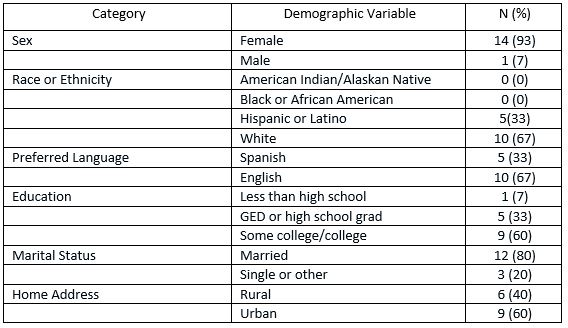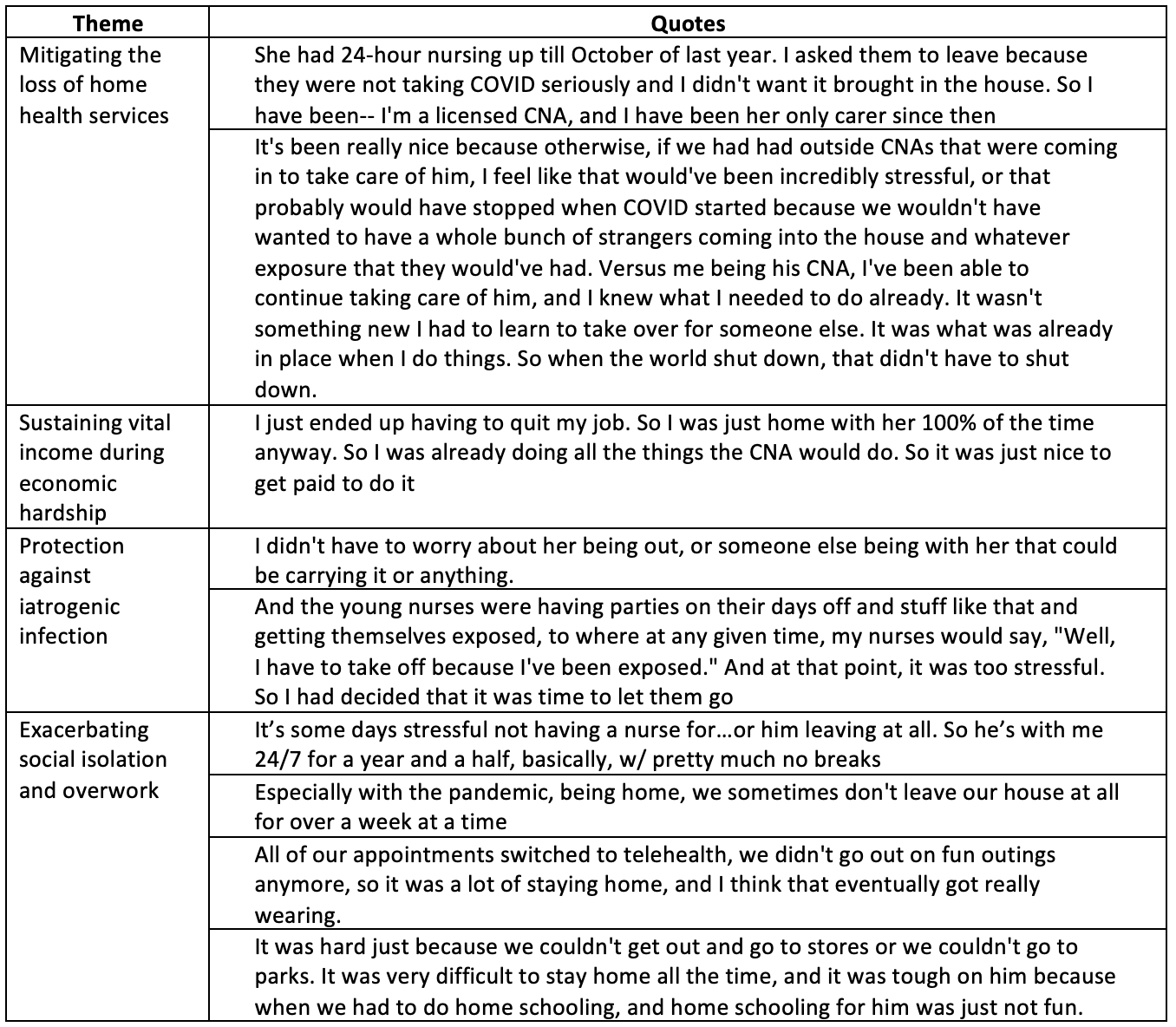Health Services Research
Session: Health Services Research 3: Access
233 - Impact of the Family CNA Program During the COVID Pandemic
Sunday, May 5, 2024
3:30 PM - 6:00 PM ET
Poster Number: 233
Publication Number: 233.1965
Publication Number: 233.1965

Lauren McIntosh, MD (she/her/hers)
Fellow
Children's Hospital Colorado
Denver, Colorado, United States
Presenting Author(s)
Background: The Family Certified Nursing Assistant (F-CNA) Program provides unique benefits to family caregivers and to children and youth with special healthcare needs (CYSHN), allowing for sustainable, high quality home health care amid financial compensation for the family caregiver. However, there may be additional advantages during a pandemic when home health and medical services are curtailed or inaccessible.
Objective: To examine the impact of the F-CNA program during the COVID pandemic using qualitative methods
Design/Methods: Key informant interviews of 15 English- and Spanish-speaking family caregivers of CYSHN were conducted by a professional bilingual research assistant by phone from May – September 2021. Eligible participants were the parent or a relative of a child with medical complexity less than 19 years old and provided licensed home CNA care to the child. The interview guide assessed benefits and shortcomings of the F-CNA model in the context of the COVID pandemic. Qualitative content methods and reflexive team analysis of transcribed interviews were used to develop key themes summarizing the impact of the F-CNA model during the pandemic.
Results: Demographic characteristics of interview participants are shown in Table 1. Key themes regarding impact of the F-CNA during the pandemic emerged: 1) Mitigating the loss of home health services, 2) Sustaining vital income during economic hardship, 3) Protection against iatrogenic infection, and 4) Exacerbating social isolation and overwork. Family caregivers described how fortunate they were to be able to provide home health services for their child and earn life-sustaining income in the wake of home health service disruptions, job losses, and economic hardships brought on by the pandemic. Some were relieved that they could protect their children from infectious exposures by outside home care workers or medical staff, relying on their own expertise and telehealth to fill service gaps. However, others reported feeling more isolated and under more duress (due to taking on more home health care burden) than they had prior to the pandemic. In a few cases, this adversely impacted their or their child’s mental health, and they often did not have an outlet or solution to address this problem (representative quotes; Table 2)
Conclusion(s): The F-CNA model offers key protections, but also exacerbates certain stressors during a pandemic. This research shows additional benefits of the F-CNA program during times of uncertainty and identifies potential improvement opportunities.


